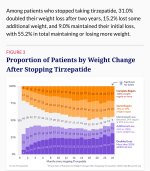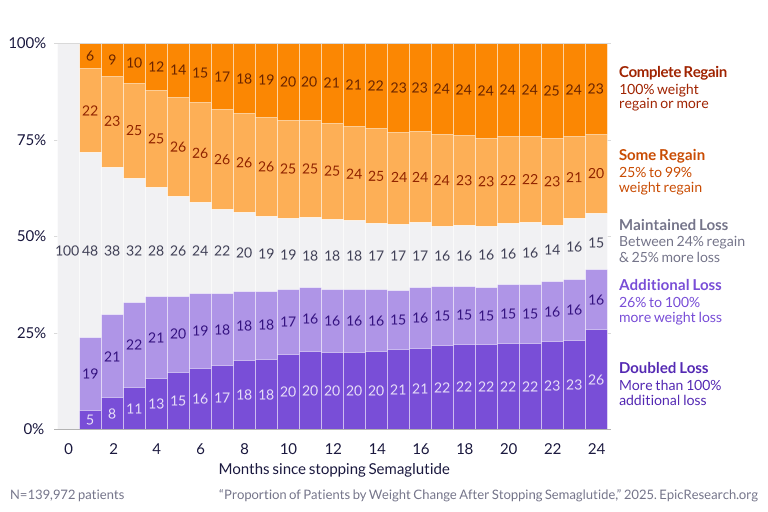50ShadesGreyMarket
GLP-1 Enthusiast
According to the records of 40,000 patients at Epic, more than 50% of them were able to keep off the weight or continue to lose weight in the 2 years after discontinuation of GLP-1’s. Roughly 20% gained the weight back. This is based on medical records, not self-reported. Regardless of how many studies or reports come out, I still hear people parrot the narrative of Big Pharma that “once you pop, you can’t stop”. I get this may be the case for opioids, but GLP-1’s seem to affect different people differently.


 www.epicresearch.org
www.epicresearch.org


Two Years After Stopping GLP-1s, Most Patients Sustain at Least Some Weight Loss
Facilitating rapid sharing of new medical knowledge
